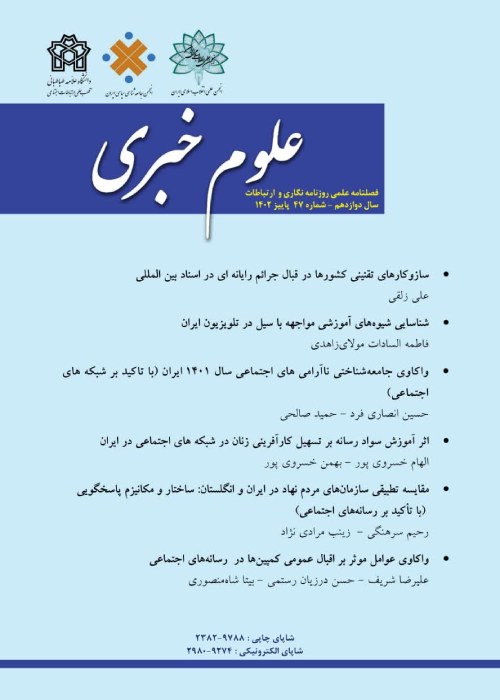The Paradox of Modernization and Constitutionalism in Iranian Experience: study of Reza Shah’s Authoritarian policies
Author(s):
Abstract:
In this paper we will survey that the first element of renovation in the last years of Qajar dynasty’s dissolution -according to Reza Khan’s desire and will power- and in accordance with what Kemal Ataturk had established before in Turkey, was establishing a republic regime in Iran. This idea intrinsically and potentially caused many contradictions, conflicts, and tensions. To mention the most important one, the regime confronted with dissatisfaction and anger of clerics who after the constitutional revolution had observed attacks and radical action of “the minority of advocates in parliament. Also, they had observed the revolution experience of Turkey in objective and tangible way. So the idea of changing governmental system to republic system with guidance and oppositions of Ayatollah Seyed Hassan Moddares completely failed. After this defeat, the mere effort of the founder of Pahlavi dynasty was to assemble the influential political personalities and elites around the programs like modernization, centralization, political and social developments, iranisation and nationalization. The fact is that fifteen years after the creation of constitutional revolution concurrent with solar years between 1282 to 1300, fundamental accomplishments and constitutional requirements which included Constitutional Law, rule of law, establishment of parliament, freedom, the threat of limiting king’s power and authorities in the framework of the act of law, separating the powers of governments, and other factors all was ignored completely by Reza Khan. Did anarchy, insecurity, and the security issue after the constitutional revolution caused the delay of the urgency of creating a democratic system? As we shall consider it later, fulfilling Reza Khan’s goals was totally very difficult. On the basis of this his first priority was opposing against social division which embody themselves in the form of unruly and disobedient dissociation movements and tribal power which deny to accept the new order, centralization, and national unity. In fact in his opinion tribalism and tribal power was a main impediment to establish a modern and central government. In the first years of Reza Khan’s reign, English and Russian government did not show any opposition to this project. Although sixteen years later in 1320 solar year, both two of the mentioned world power despite their deep-rooted hostility, and due to the common threat from Germany, Italy, and Ottoman Empire allied together and did not hesitate for military occupation and dismissal of Reza Khan from monarchy and exile.
Keywords:
Language:
Persian
Published:
Journal of News Sciences, Volume:7 Issue: 27, 2018
Pages:
101 to 130
https://magiran.com/p1983696
دانلود و مطالعه متن این مقاله با یکی از روشهای زیر امکان پذیر است:
اشتراک شخصی
با عضویت و پرداخت آنلاین حق اشتراک یکساله به مبلغ 1,390,000ريال میتوانید 70 عنوان مطلب دانلود کنید!
اشتراک سازمانی
به کتابخانه دانشگاه یا محل کار خود پیشنهاد کنید تا اشتراک سازمانی این پایگاه را برای دسترسی نامحدود همه کاربران به متن مطالب تهیه نمایند!
توجه!
- حق عضویت دریافتی صرف حمایت از نشریات عضو و نگهداری، تکمیل و توسعه مگیران میشود.
- پرداخت حق اشتراک و دانلود مقالات اجازه بازنشر آن در سایر رسانههای چاپی و دیجیتال را به کاربر نمیدهد.
In order to view content subscription is required
Personal subscription
Subscribe magiran.com for 70 € euros via PayPal and download 70 articles during a year.
Organization subscription
Please contact us to subscribe your university or library for unlimited access!


